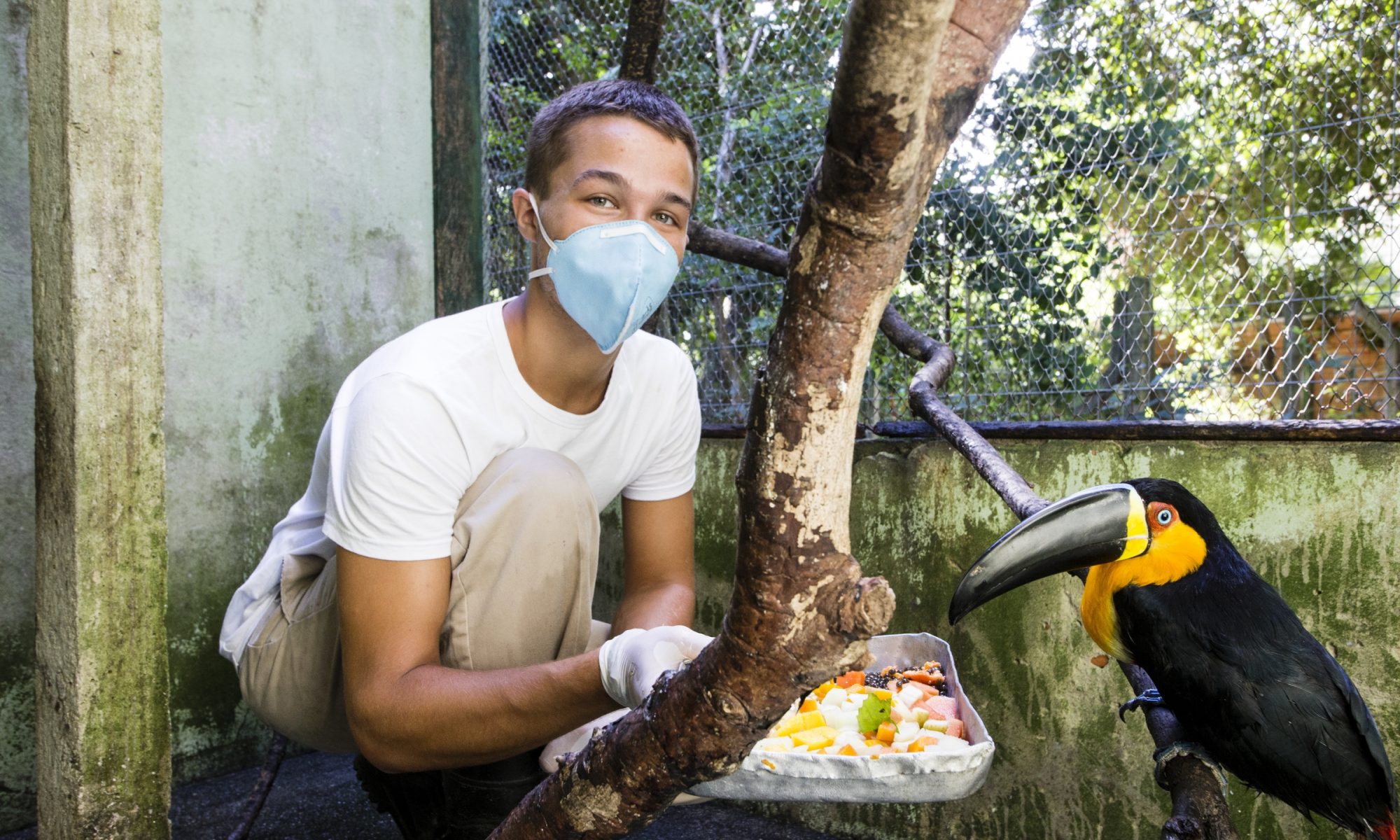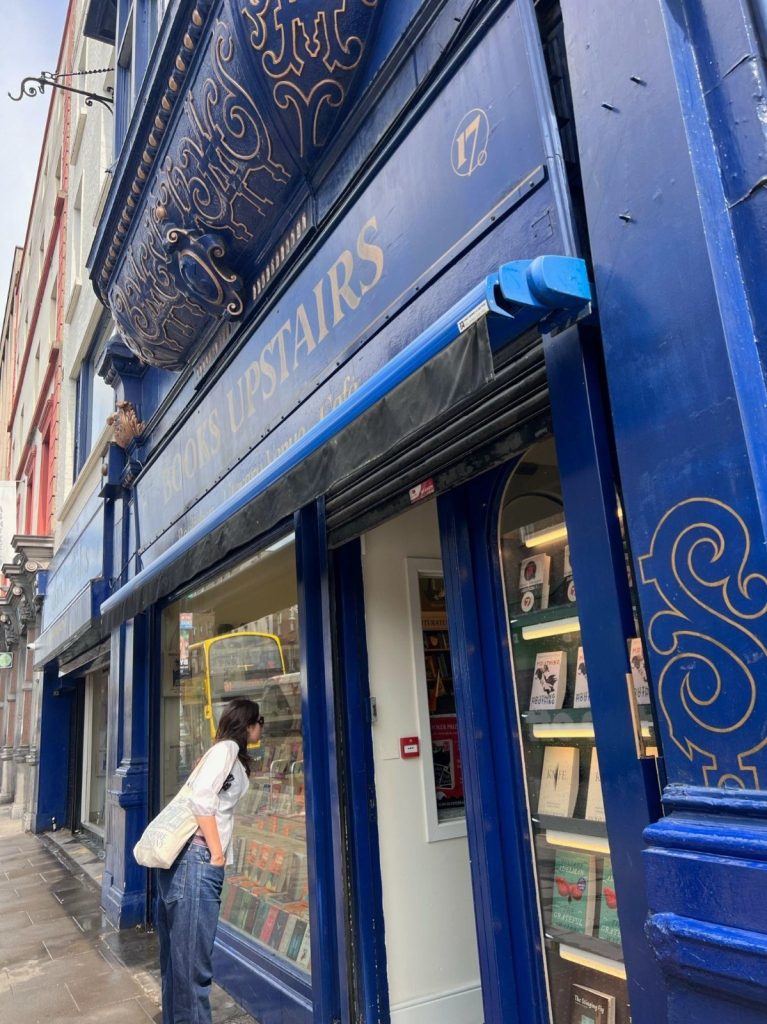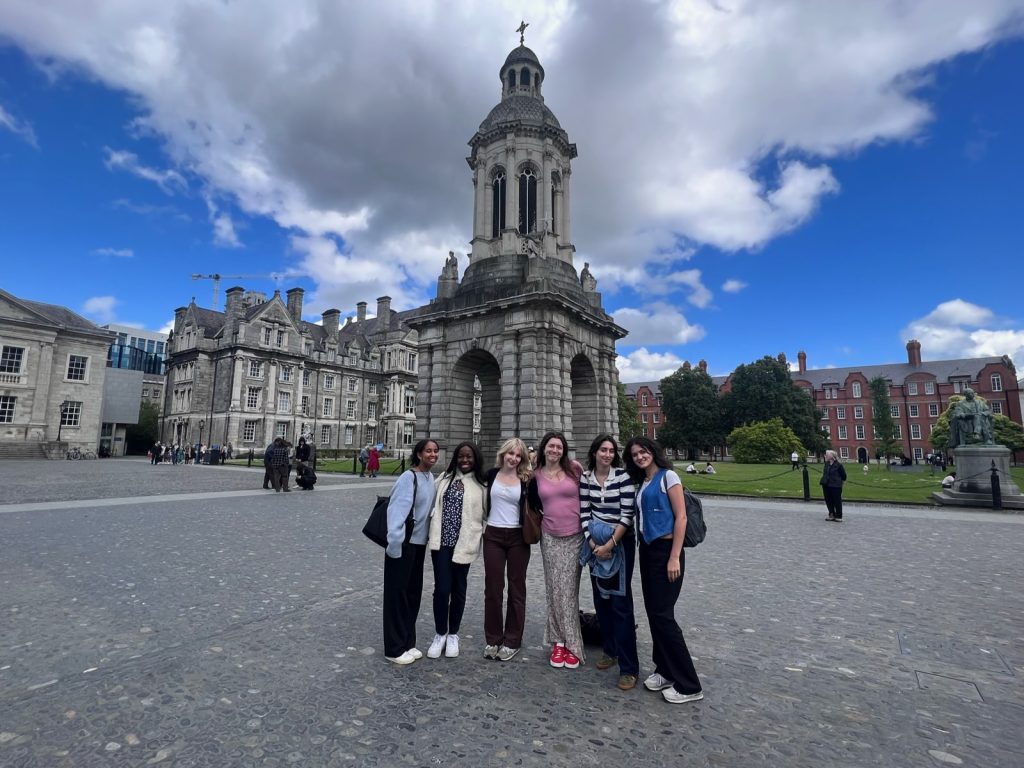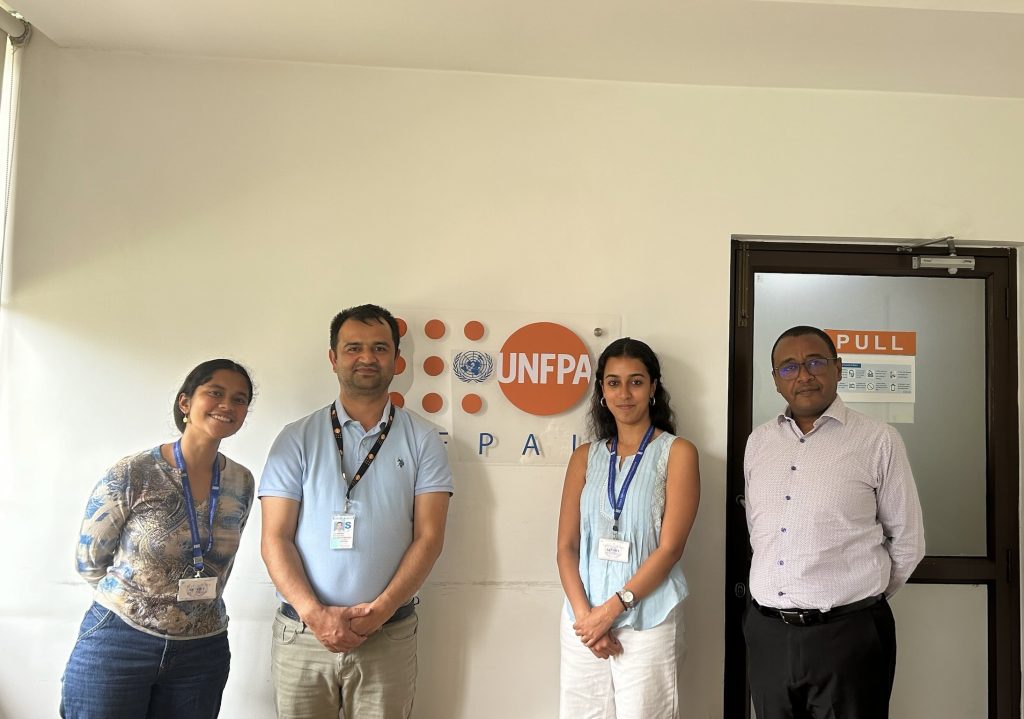By Sophia Gaitanis
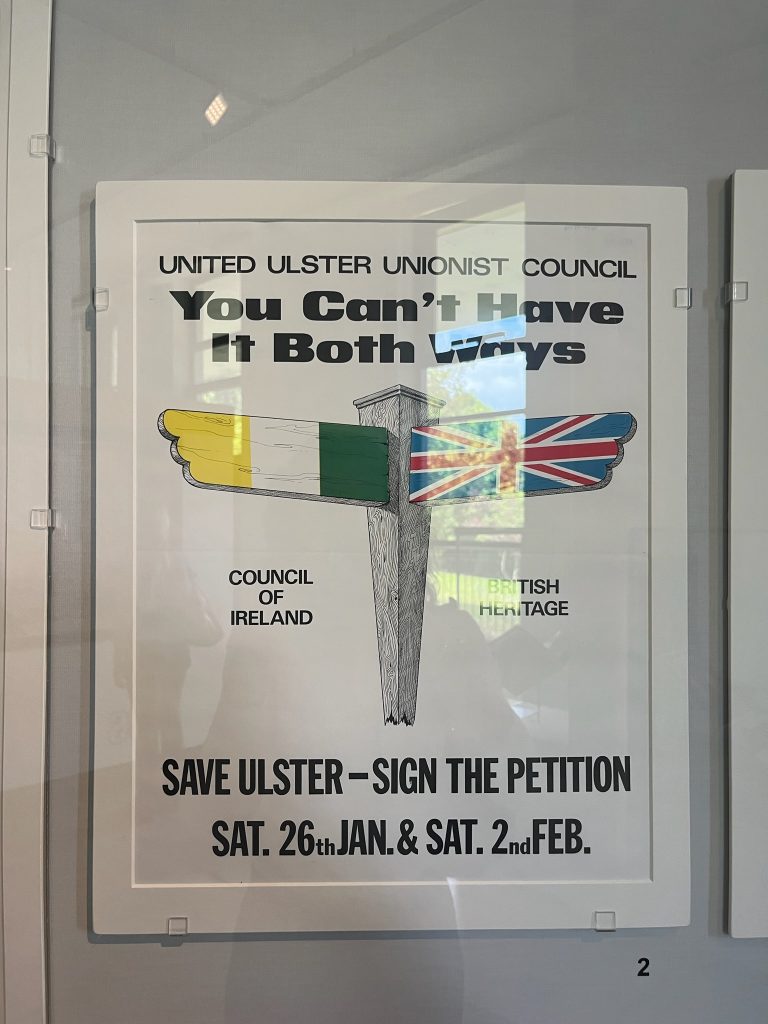
Although not a day of meetings and formal research, our fifth day of the trip had no shortage of academic exploration and discovery. We started our day by venturing outside Dublin to explore Belfast— a city in Northern Ireland, U.K. with a deep history in the struggles between Irish and British individuals we were eager to learn more about. On the way over, we admired the Irish countryside and small towns/farms that we did not have the opportunity to admire in Dublin. Eventually, the vibrant countryside faded into a historic city. When we first arrived, it became apparent we had left the country. The juxtaposition of U.K. flags and Protestant churches along with Irish flags and Catholic Churches gave us insight into the complex history and identity of Belfast.
Shortly, we made our way over to the Ulster Museum to explore their exhibition on “The Troubles”–the period of ethnic conflict within Northern Ireland starting in the 1960s. I was vaguely familiar with the hostility between Britain and Ireland along with Britain’s history of imperial control of Ireland, but I was eager to learn more details and specific stories. I learned more about the ethno-religious conflict that contributed to the building tensions between the British and Irish. By 1960, these distinct identities contributed to battling political identities– with many Protestants advocating for Northern Ireland to remain a part of the United Kingdom and Irish nationalists advocating for reunification with Ireland. The Museum included many personal stories of the impact of violence on everyday life, along with examples of how revolutionary ideology was spread by each side to justify their cause.
What struck me most when learning about The Troubles was its connection to broader Civil Rights, Women’s, and liberal movements in the 60’s. For women in particular, I was surprised to learn of their role in the revolution which was an extension of broader movements for women’s rights. For example, the exhibit showcased copies of pages within an Irish nationalist Declaration specifically written and signed by women. Another book entitled “A Call to the Women of Ireland” was included in the exhibit, which highlighted the role of women in spreading the ideology of the movement. Another video in the exhibition detailed how the U.S. Civil Rights Movement created momentum in the Irish nationalist cause. Much like the Civil Rights Movement, I learned of the crucial role of Irish students in raising awareness and fighting for their cause. Furthermore, many artifacts detailed the parallel Unionist movement during The Troubles, which the Irish used to build support for the Nationalist cause. These simultaneous movements and their role in the broader cause of the Troubles uniquely contextualized this conflict within the broader movements of the ‘60s and how they related with each other to impact all movements. Although the violence of The Troubles is over, more than 20 years later the contentious relations between Protestants and Catholics and their respective disagreements within Northern Ireland are still apparent. My exploration both inside and outside the museum made me realize there is still much work to be done and conversations to be had regarding the ethno-religious relations in Northern Ireland.
